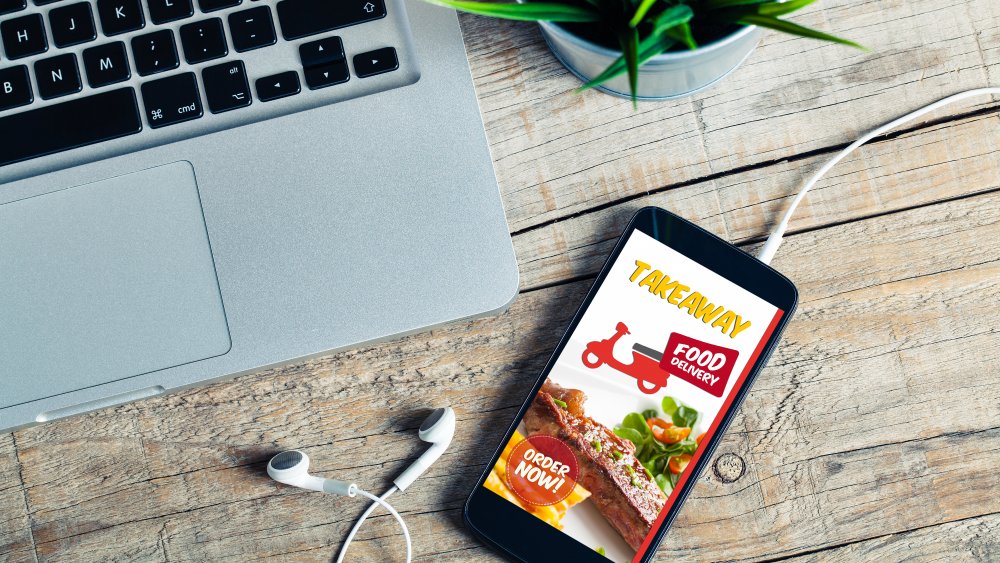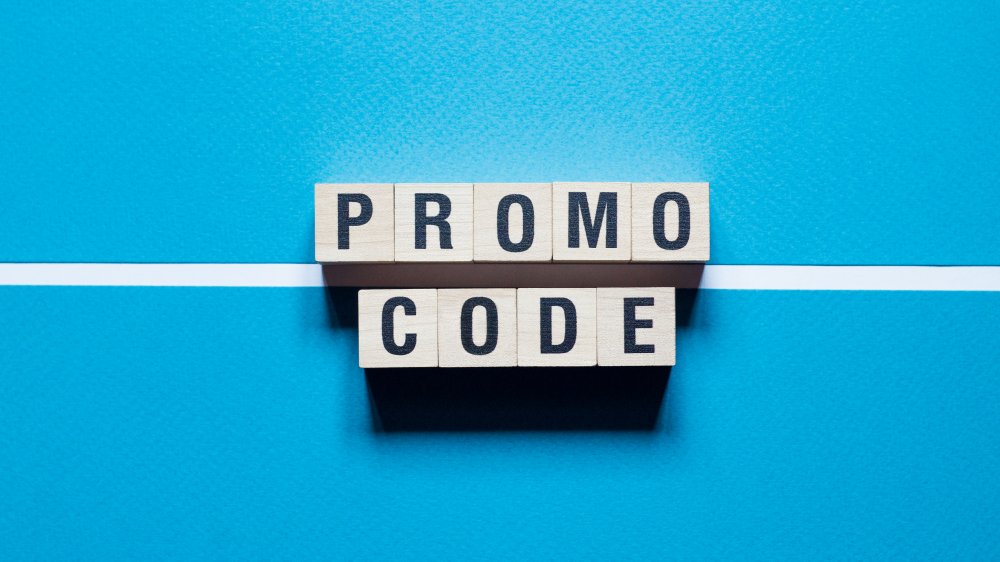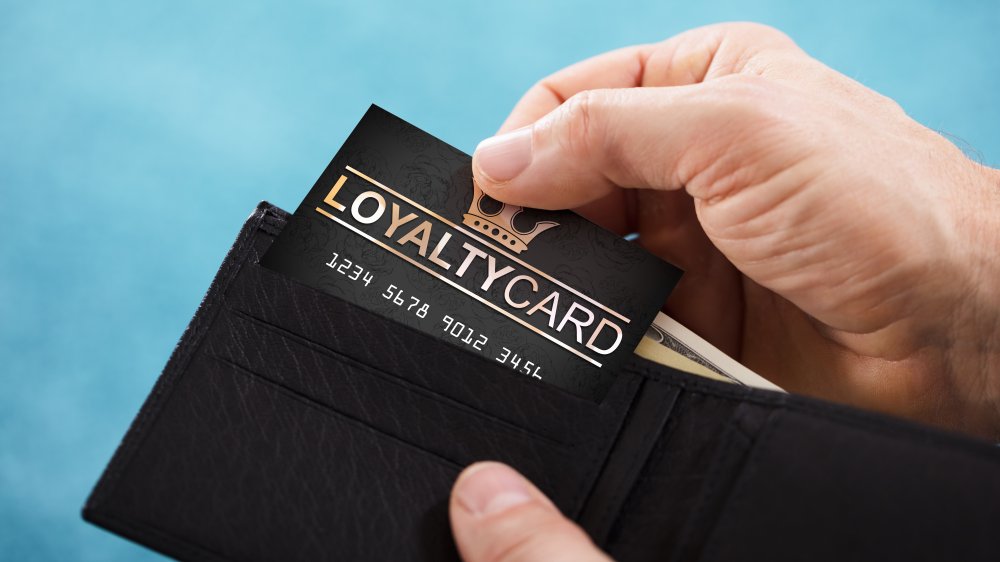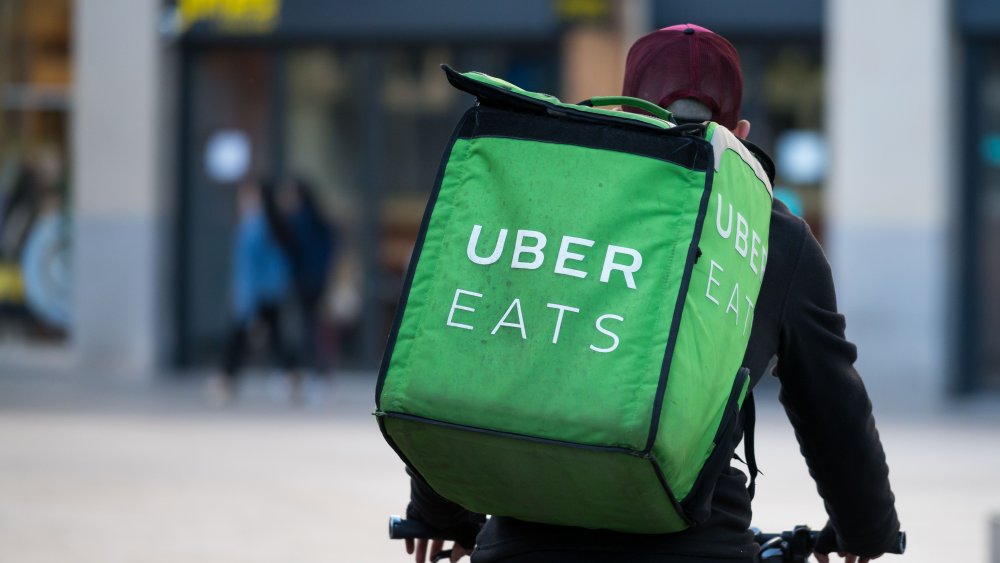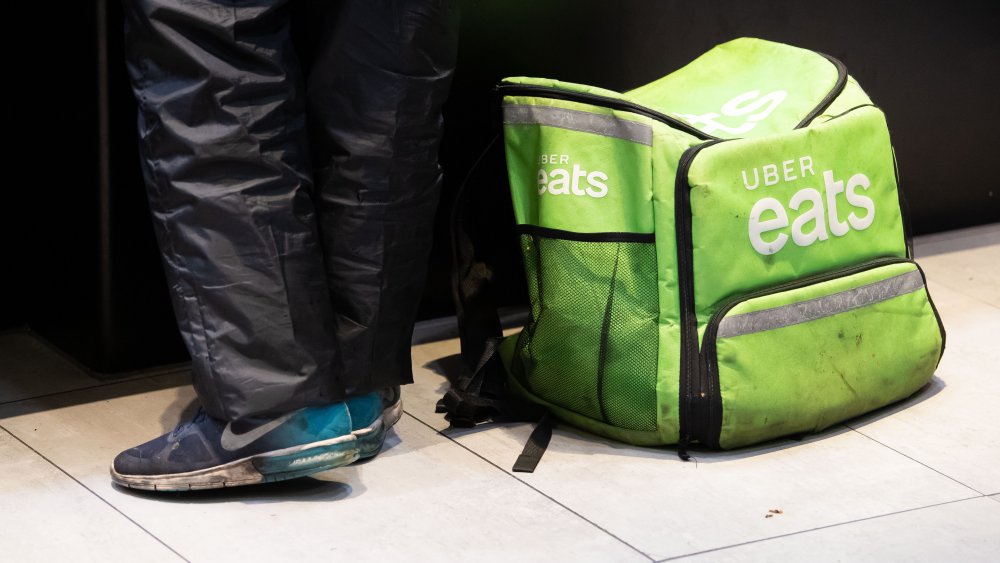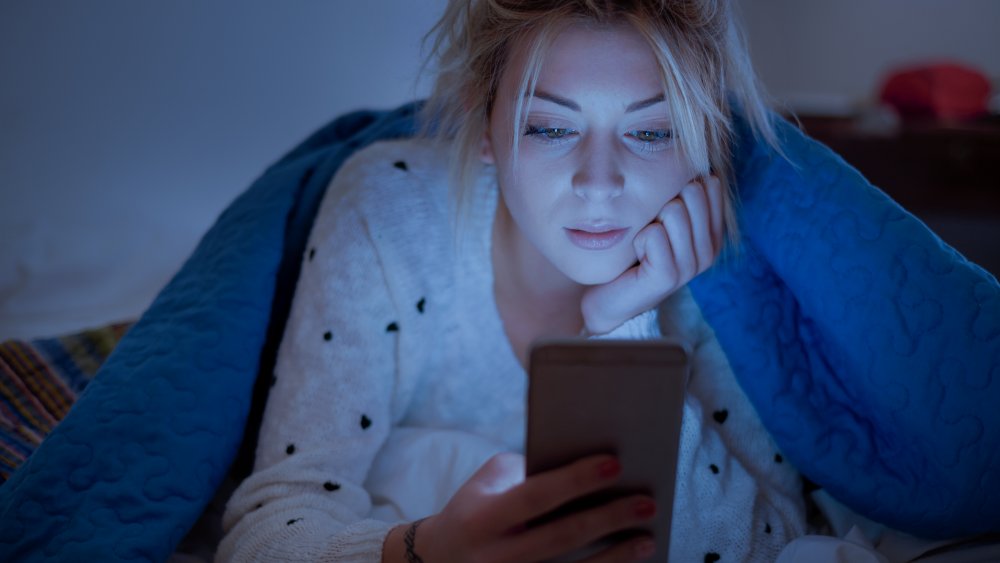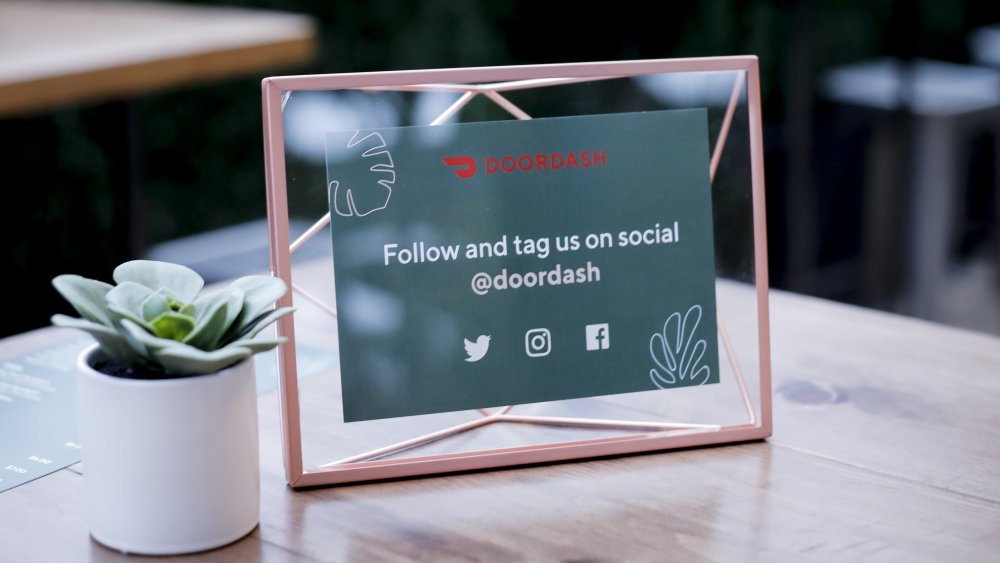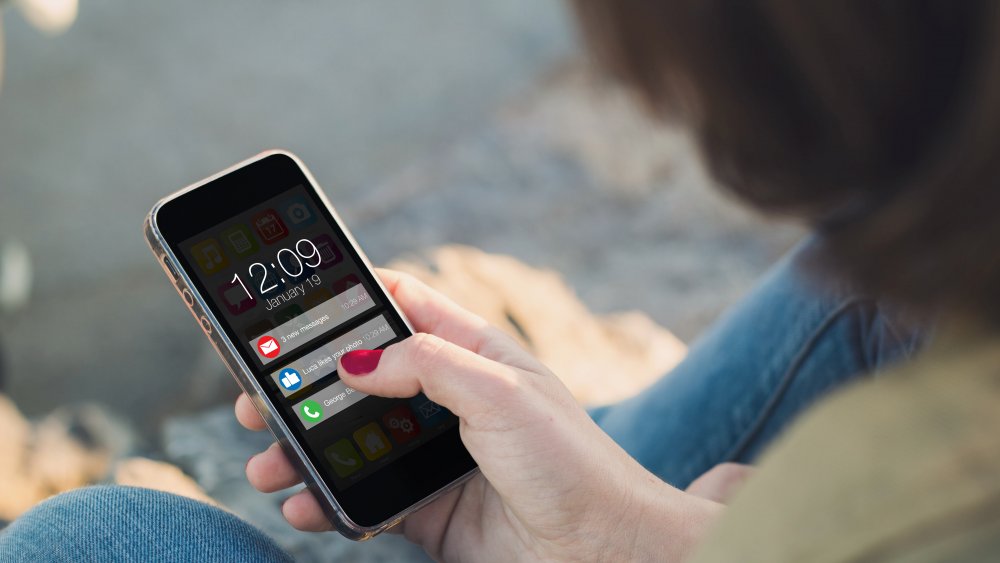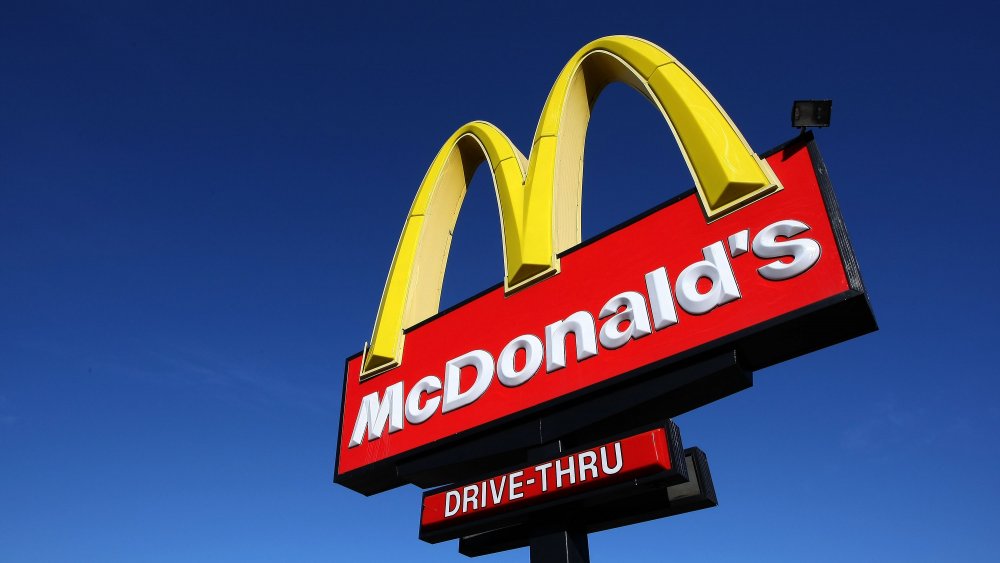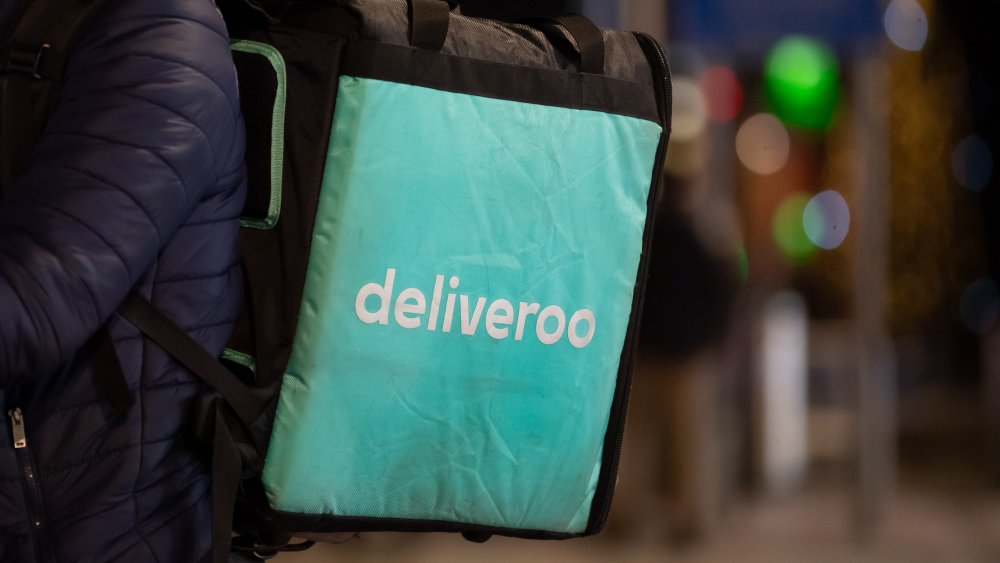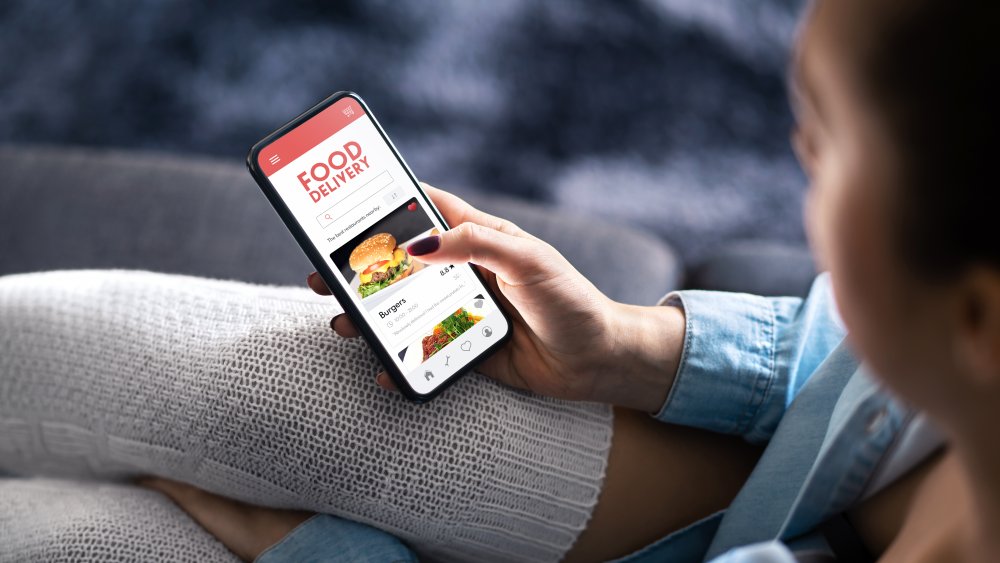How Food Apps Are Scamming You
The humble food app may seem like the greatest invention since humans made the wheel. In fact, one might even argue that these programs are better than a singular, circular hoop that you cannot order milkshakes from. You can use these applications to find amazing discounts and get meals delivered directly to your door. Yup, these services can certainly make our lives more enjoyable.
However, most of these apps don't solely exist to provide you pancakes — a lot of them were built to make money. Actually, some of them were designed to generate a mind-boggling amount of cash. And these money-hungry apps may want to trick you in order to turn a juicy profit. They are liable to scam you into making impulse purchases or ordering a bad meal. If one thing's for certain, everyone should be a bit wary of these programs.
Therefore, with all of that in mind, let's deep-dive into some of the ways that these food apps may try to fool you. They might not be pretty, but a least you'll be more informed the next time you use Uber Eats.
Some food apps try to scam you by offering free items
Ah, food that's on the house. Does a meal ever taste better than when it costs nothing? Some of these food apps advertise these sorts of deals. Burger King once offered a "free" Impossible Croissan'wich through its application, and Jack in the Box provided a complimentary vanilla shake with any in-app purchase.
These free food deals can be fun and delicious. Nevertheless, some of them may try to gull you into becoming a long-term customer. Apptopia believes that complimentary food could potentially transform app downloaders into daily active users. In July of 2018, McDonald's offered a free medium fry to everyone who downloaded its application and spent at least a dollar at one of its stores. This promotion skyrocketed the McDonald's app up the U.S. App Store charts. "The McDonald's mobile app has never had more daily active users in the United States than it does now," stated Apptopia at the time.
So, the next time you're tempted to download an app for free food, remember that this deal could perhaps trick you into becoming a regular customer. This fact may just save you from falling for this potential scam.
Loyalty food apps plot to make you an unwavering spender
Doling out free food isn't the only way that some restaurants attempt to sucker you into becoming a routine diner. A bunch of these places have mutated the classic loyalty card into loyalty food apps. And these schemes can be successful. Annex Cloud, a customer marketing platform, reported that these programs "retain customers by rewarding them for their repeat purchase behavior." These loyalty programs can also make you spend more money. Annex Cloud revealed that these systems increased their clients' overall revenue between five and ten percent.
Thus, we can easily see why so many eateries have applications with many of the same features as loyalty cards. Antavo, another marketing platform, stated that Dunkin' app users get priority service. The company also pointed to programs from Famous Dave's and BurgerFi that award points to their customers. If a patron gets a high enough score, they can get a discount on their next meal. And do you think that these promotions would survive if they didn't earn any money?
We should all be vigilant and careful when using these loyalty systems. You don't want to be scammed into spending more money more frequently.
Uber Eats scams a number of its food app users into potentially hurting restaurants
When you order a meal from a food app like Uber Eats, you're probably thinking more about the burger that you'll devour in bed than the restaurant you got it from. And if you were to think about the restaurant at all, you'd maybe even believe that your purchase would help the business. But in reality, this app may have just shammed your wallet into doing more harm than good.
In 2018, Forbes noted that restaurants would probably lose money on every Uber Eats order. According to the article, "Uber Eats charges a restaurant 30 percent of their listed prices for the privilege of delivering their food. For example, Bob's Deli charges $10 for a burger. Uber Eats would take $3 dollars as a fee for delivering their food. Also, Uber Eats does not permit restaurants to increase their prices to 'cover' Uber's cost." The problem with this business model is that an eatery's average profit margin is under 30 percent.
"Fast food such as McDonald's reported profit margins about 22 percent in 2017," Forbes continued. "Casual dining or family style restaurants have a profit margin between 5 percent to 10 percent." This means that when you're getting a delicious meal from Uber Eats, the company could be scamming you into hurting your favorite local spot if its profit margin isn't higher than 30 percent.
Food app drivers may be stealing your food
If your Uber Eats order arrives without the hash brown that you've purchased, you may assume that the delivery driver chowed down your potatoes. And unfortunately, there's a decent chance that's what actually happened. In an article from NPR, Dani Matias looked at a survey conducted by US Foods. This data discovered that "nearly 30 percent of drivers are snacking from the food they're responsible for delivering."
However, some drivers might be taking more than one hash brown from your bag. A few of them are potentially stealing your entire meal. On the Uber Drivers' subreddit, a user who claimed to be a food app delivery person asked, "Who here cancels on ubereats orders so they can get free food?" They then went on to say, "Once out of every few tens of deliveries, I'll do this if I get an order that appeals to me near the end of a shift. Surely I'm not the only one."
Unfortunately, there's not much you can do about a driver stealing your grub. All you can do is report the missing food, complain, and hope that a decent human being delivers your next meal.
Zomato's infinite scrolling feed that can scam its users
Sometimes, when you're on Facebook or Twitter, you may feel like you can just scroll down forever. There's a scientific reason that explains why your feed could be mesmerizing you. These websites and apps have a feature that's known as the infinite scroll. According to NN/g, "Infinite scrolling is a web-design technique that loads content continuously as the user scrolls down the page, eliminating the need for pagination."
Psychology Today described why the infinite scroll can captivate us: "Nothing holds our attention better than the unknown. ... Our brains can't get enough of trying to predict what's next and our dopamine system kicks into high-gear when we're waiting to know if our team will make the field goal, how the dice will land, or how the movie plot ends. Like a loose slot machine, the infinite scroll gives users fast access to variable rewards."
And it's not just apps like Pinterest and Instagram that implement infinite scrolling feeds. Paper Planes has noted that the food app Zomato uses this interface. Vinit Joshi writes, "Like any other network, you can 'Like, Comment, or Share', making it a 'Discover and Discuss' platform."
If you're a fan of Zomato, be mindful when you're using its feed. It would be pretty awful if you were scammed into scrolling until midnight.
Food apps can shake their users down for valuable data
While ordering from a food app may seem harmless, these programs could, in reality, be getting a lot of personal data from you. They are possibly learning more info about you than what kind of smoothies you like.
Geoffrey A. Fowler at the Washington Post discovered that DoorDash had nine third-party trackers. "One tracker called Sift Science gets a fingerprint of your phone (device name, model, ad identifier, and memory size) and even accelerometer motion data ... Three more trackers help DoorDash monitor app performance — including one called Segment that routes onward data including your delivery address, name, email, and cell carrier." Fowler then stated, "The delivery company tells me it doesn't allow trackers to sell or share our data, which is great. But its privacy policy throws its hands up in the air: 'DoorDash is not responsible for the privacy practices of these entities,' it says."
It's important that everyone looks after their personal information. Louis Menand for the New Yorker wrote, "The danger of data collection by online companies is not that they will use it to try to sell you stuff. The danger is that that information can so easily fall into the hands of parties whose motives are much less benign." We, therefore, shouldn't be glib when we're considering getting a cool new food app. We should think about what we might be giving away.
Food app push notifications can scam you into spending more often
Push notifications seem cuter than promotional emails, right? They'll sometimes make a fun noise when they pop up, and they don't create a box of text that you'll have to delete. But these alerts aren't the harmless notifications that they appear to be. These little nudges are trying to wile you into spending your money.
Flipdish is a business that has created an online ordering system for restaurants and takeaway joints to use. This company also believes that push notifications can grow an eatery's sales. The company claims, "A Flipdish fast food restaurant created a specific special offer for one day only and sent out a push notification to promote it. The number of orders they received that day increased X5.5, with an increase in sales of 210 percent versus the same day the previous week." Flipdish stated that these food app alerts work because they can't be missed if they appear on a user's lock screen.
Now, you may be the sort of person who likes getting push notifications or enjoys getting scammed into spending their money more often. Then hey, you do you. But for the rest of us, it could be the right time to turn off these constant notifications.
McDonald's used actual gambling mechanics in one of its food apps
In 2018, McDonald's and Hasbro teamed up to promote an app called McDonald's Monopoly across Australia. This program was a game that allowed its users to control a claw machine that picked up Community Chest cards. These cards could contain rewards like a small fry or a bag of fruit. You were also able to type in 12-digit codes that were attached to some of McDonald's in-store items, and there was a chance of winning a prize. Additionally, they featured a couple of mini-games that offered the potential to win.
Not everyone was thrilled with this food app game. In 2019, Jane Bartley wrote in The Public Ear, "I believe McDonald's Monopoly has exceeded the boundaries of their social contract as a globalized food enterprise by exploiting a traditional family-centric game into a gamified, gambling commercial campaign."
Bartley goes onto state that because there's a one-in-five chance of winning a prize, McDonald's effectively eroded the distinction between "social gaming" and "chance gambling." A user would spend their actual money in the hopes of winning real rewards. Is this act truly that much different than someone playing the lottery? Be cautious if you're using a food app with gambling mechanics. Nobody should be scammed out of their money in an attempt to get a free Big Mac.
These food apps could scam you into buying terrible food
In January of 2019, Joe Lycett discovered that one in five Uber Eats restaurants in London had a zero-star hygiene rating. According to Hub, receiving this score means that the business in question may have "significant food hygiene breaches that could put people's health at immediate risk." And at the end of the day, no place with this catastrophic grade should be promoted on a food app.
But Uber Eats isn't the only food app that has platformed terrible restaurants. A 2019 BBC investigation revealed that Deliveroo dispatched food from 18 zero-star outlets across Manchester, Birmingham, and London. It also discovered that Just Eat hosted "259 takeaways with a one rating" in the same three cities. So, what's the moral of this story? Well, if you're going to get your feed through a food app, you should Google the restaurant that you're ordering from. Not only does food from a zero-star restaurant not sound delicious, but it could actually be putting your health at risk.
Food apps can scam you into making impulse purchases
Have you ever opened one of these food apps, planned on just getting a burger, and instead bought 17 items on a whim? If you have, don't be surprised. Some of these programs encourage impulse spending. Rackspace Technology reported that 48 percent of UK adults who use smartphones admit to making more impulse purchases when using handheld devices. These individuals spend an average of £329 per person per year than they otherwise might.
But how can a food application spur someone into making an impulse purchase? Well, one way these programs encourage this behavior is through advertising discounts. An article in IOSR Journal of Business and Management states, "While browsing shopping apps on smartphones, people come across various products which show discount percent and this is wooing them to purchase impulsively..."
It's therefore not a surprise that a ton of these programs have offered exclusive in-app discounts. KFC, Wendy's, and Burger King have all created these deals. When you see these rates and feel that urge to buy all of the discounted items, ask yourself if you really need that extra food. You could be saving your bank account from unnecessary losses.
